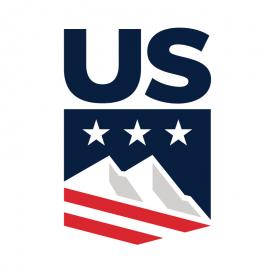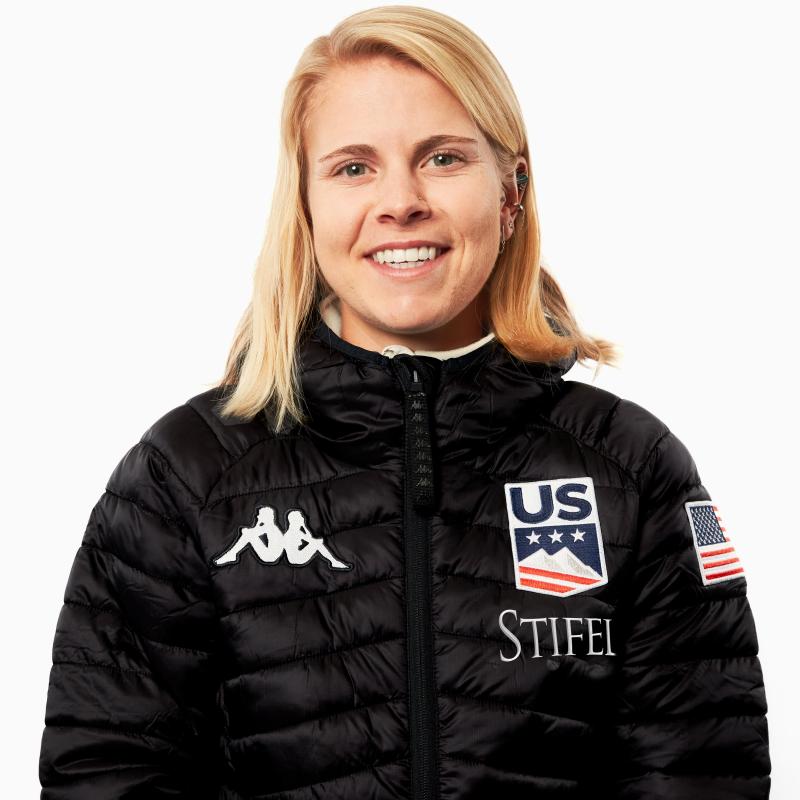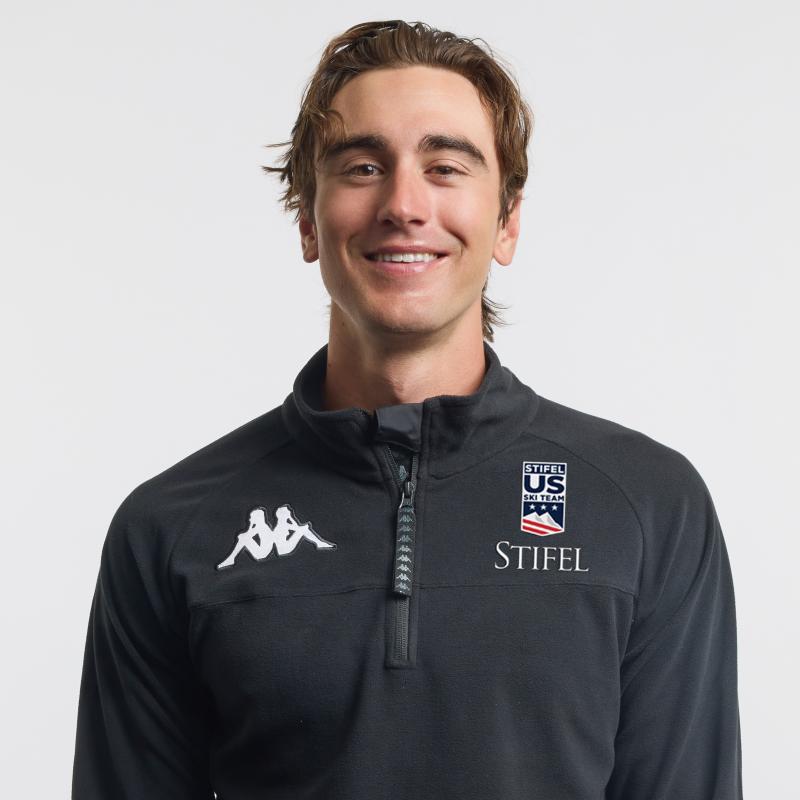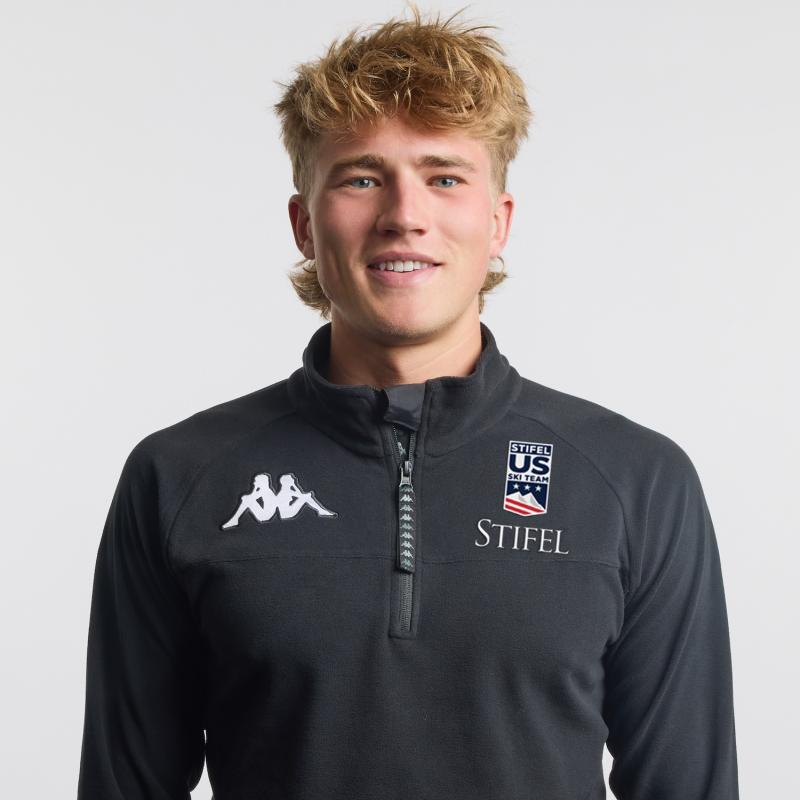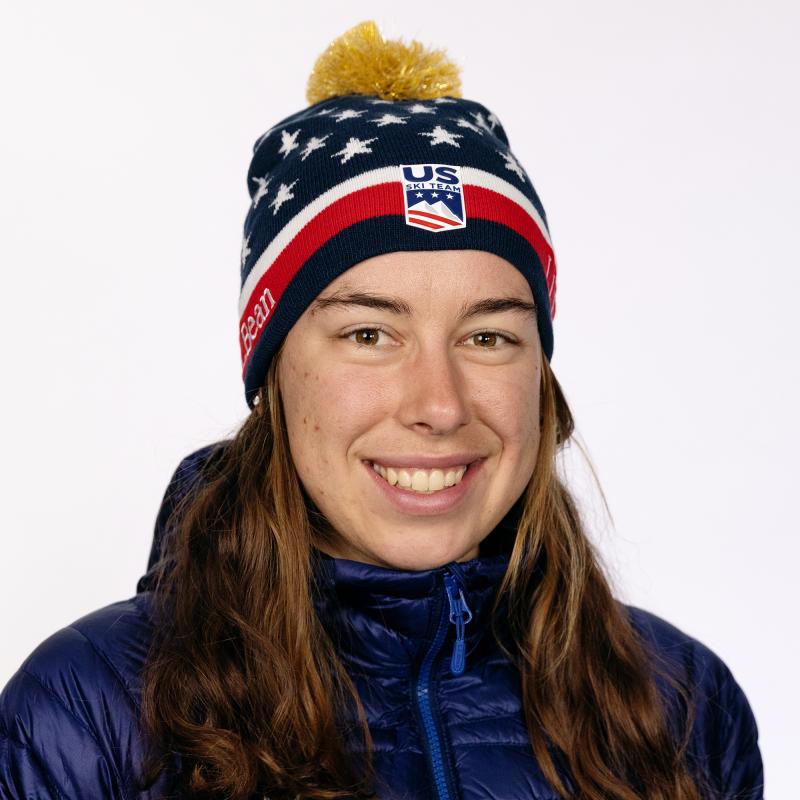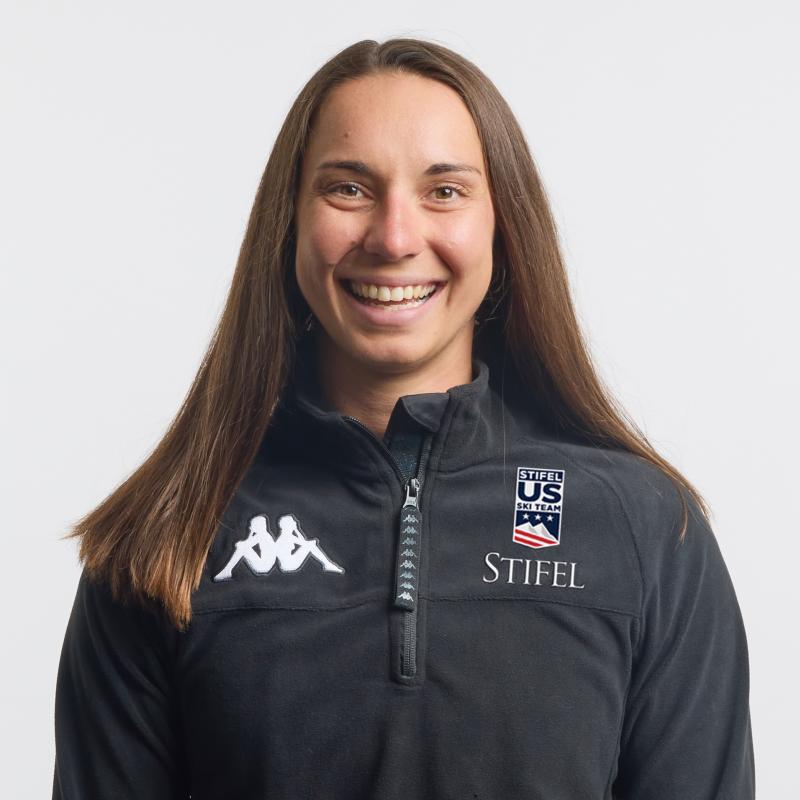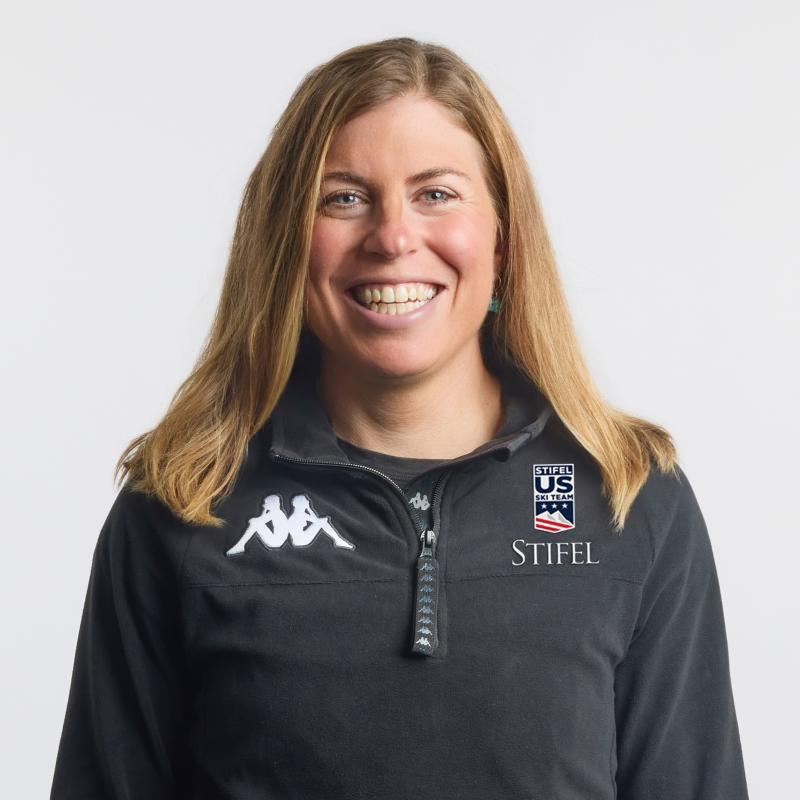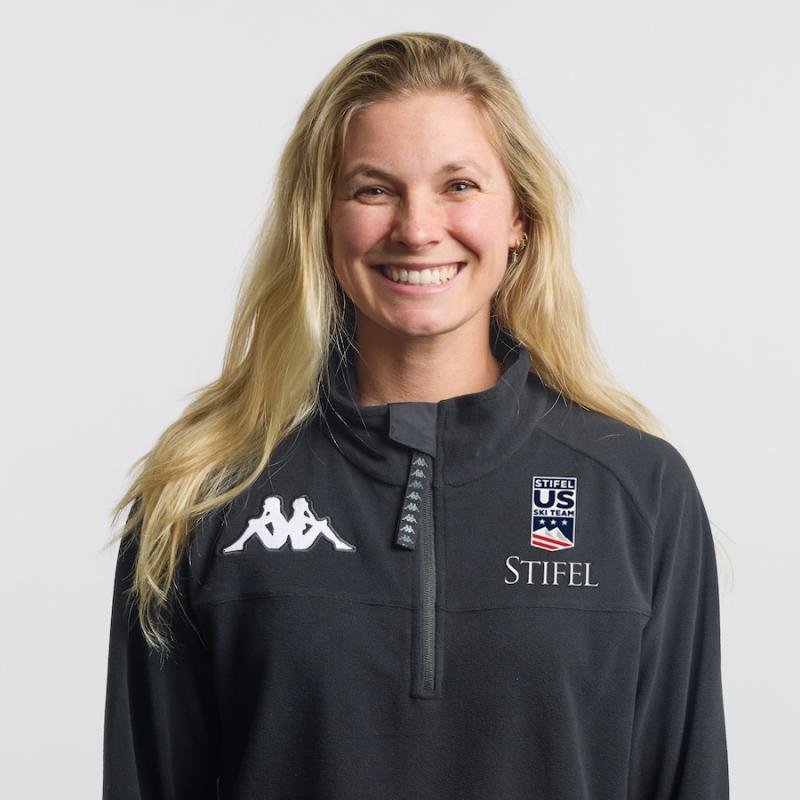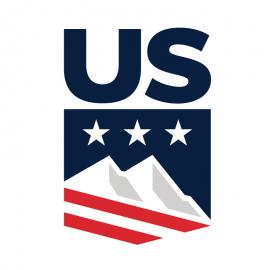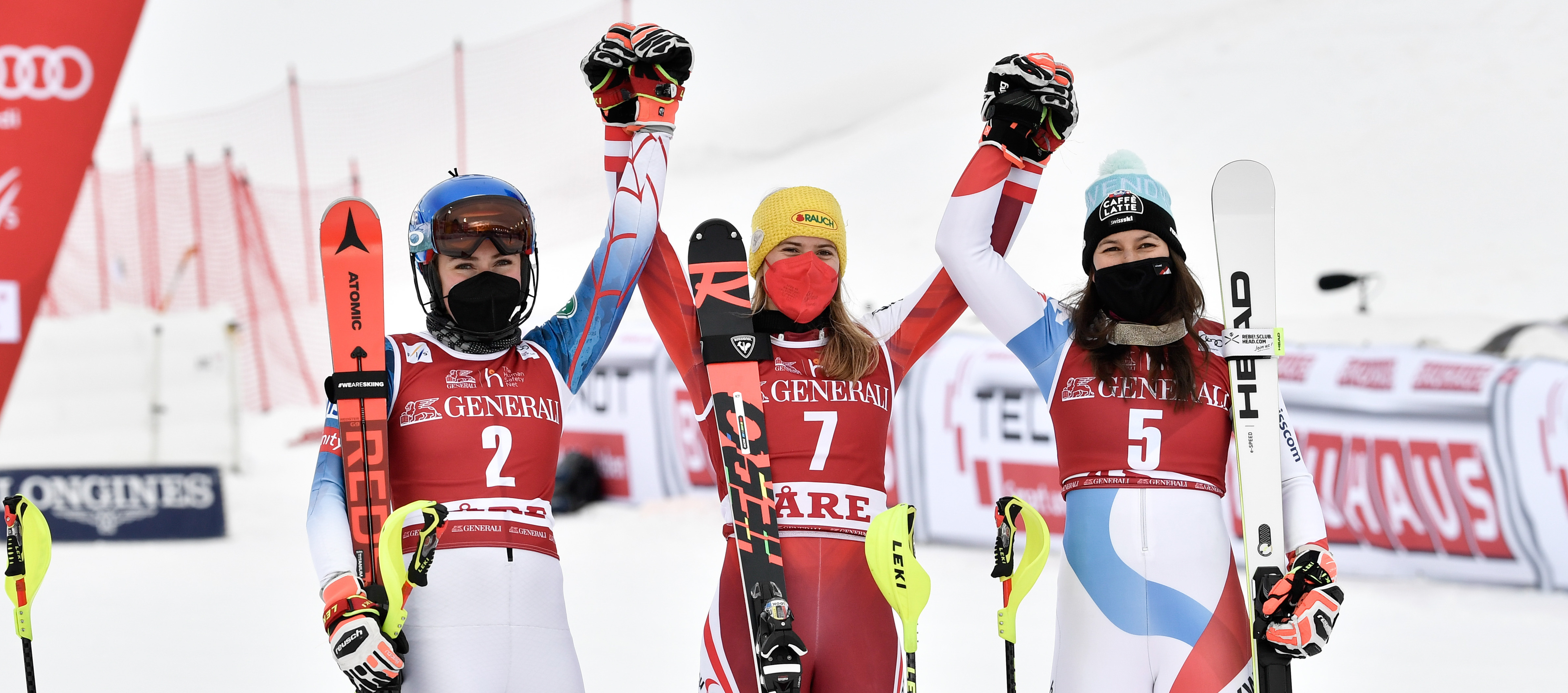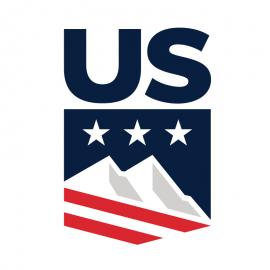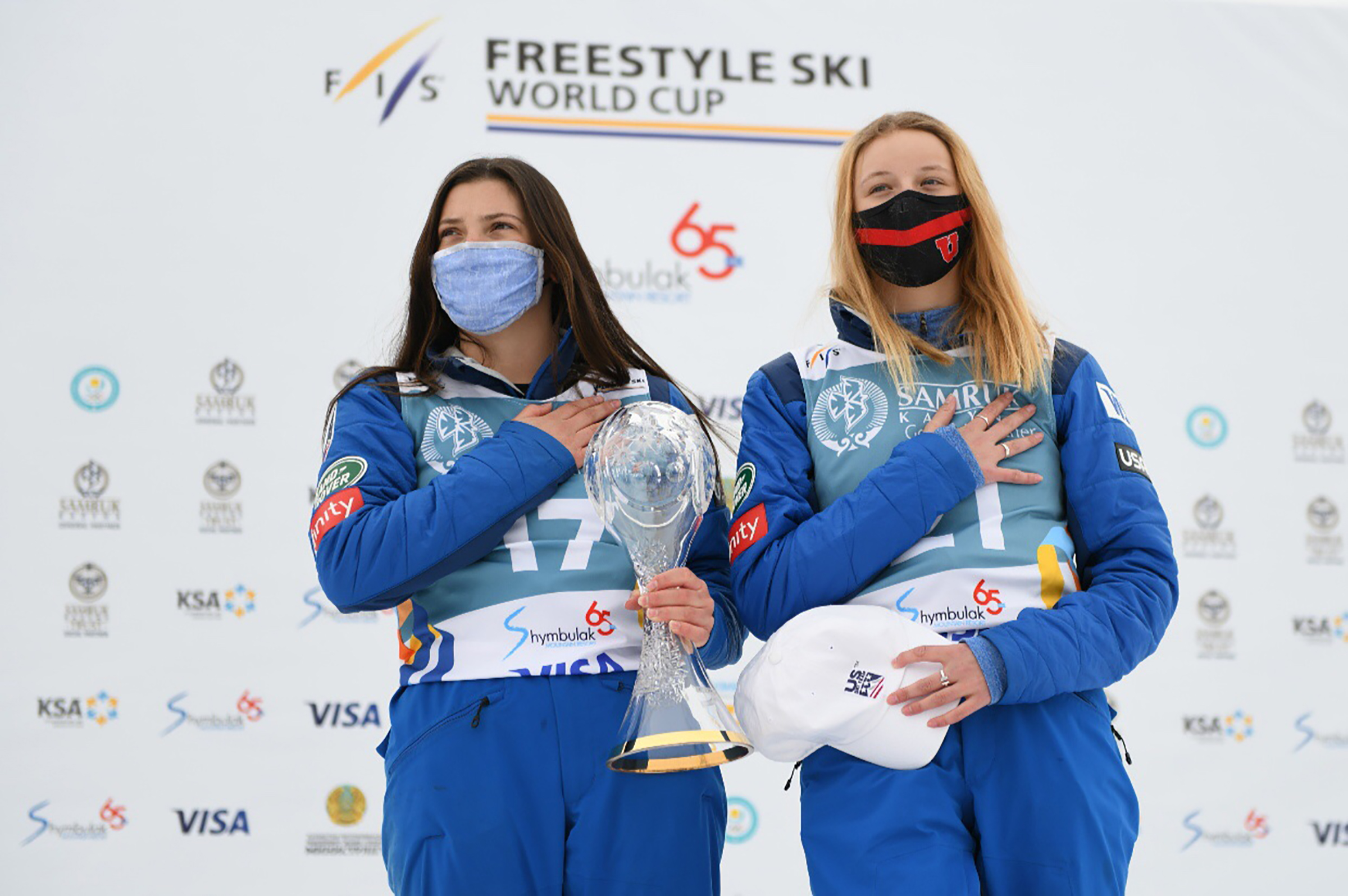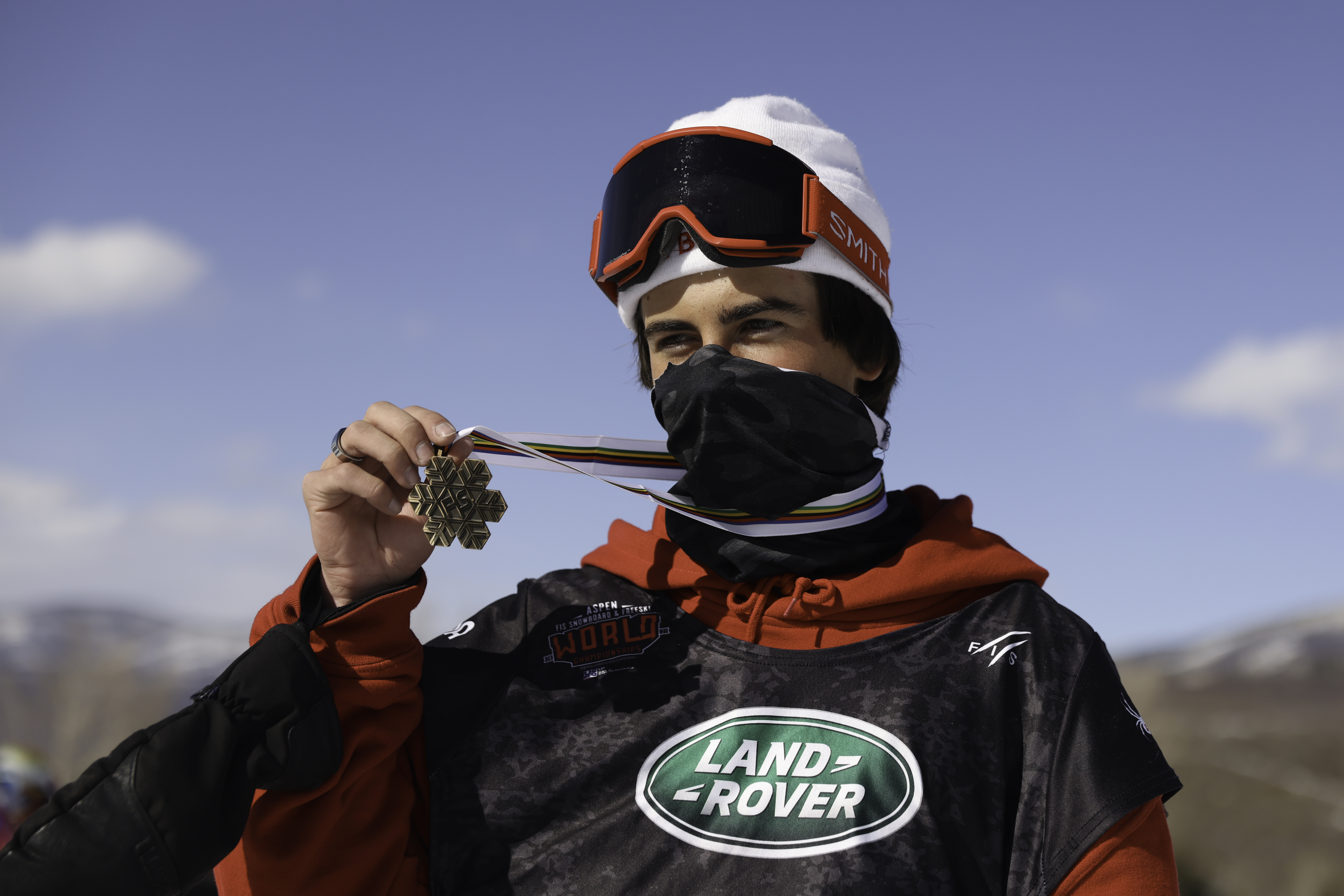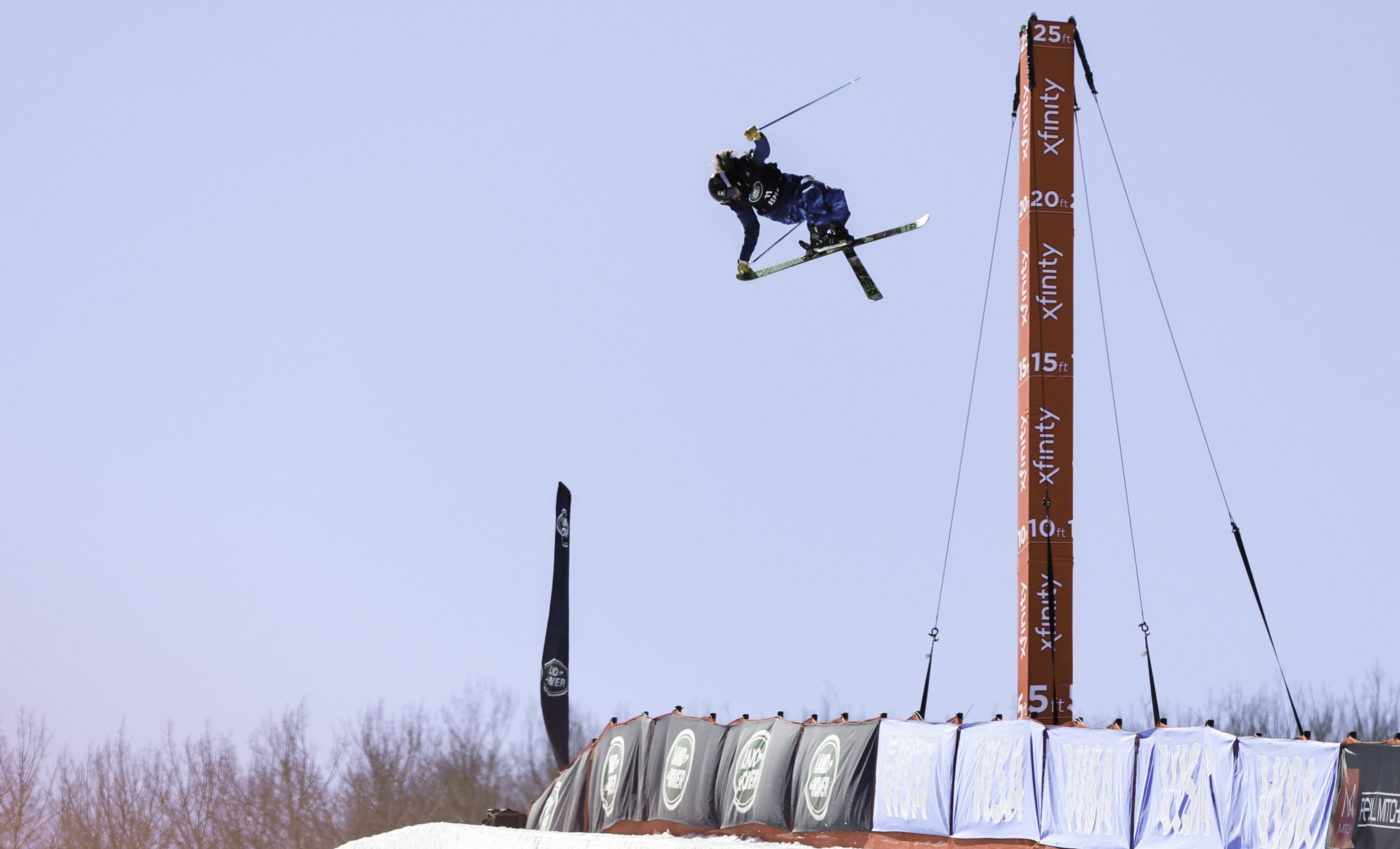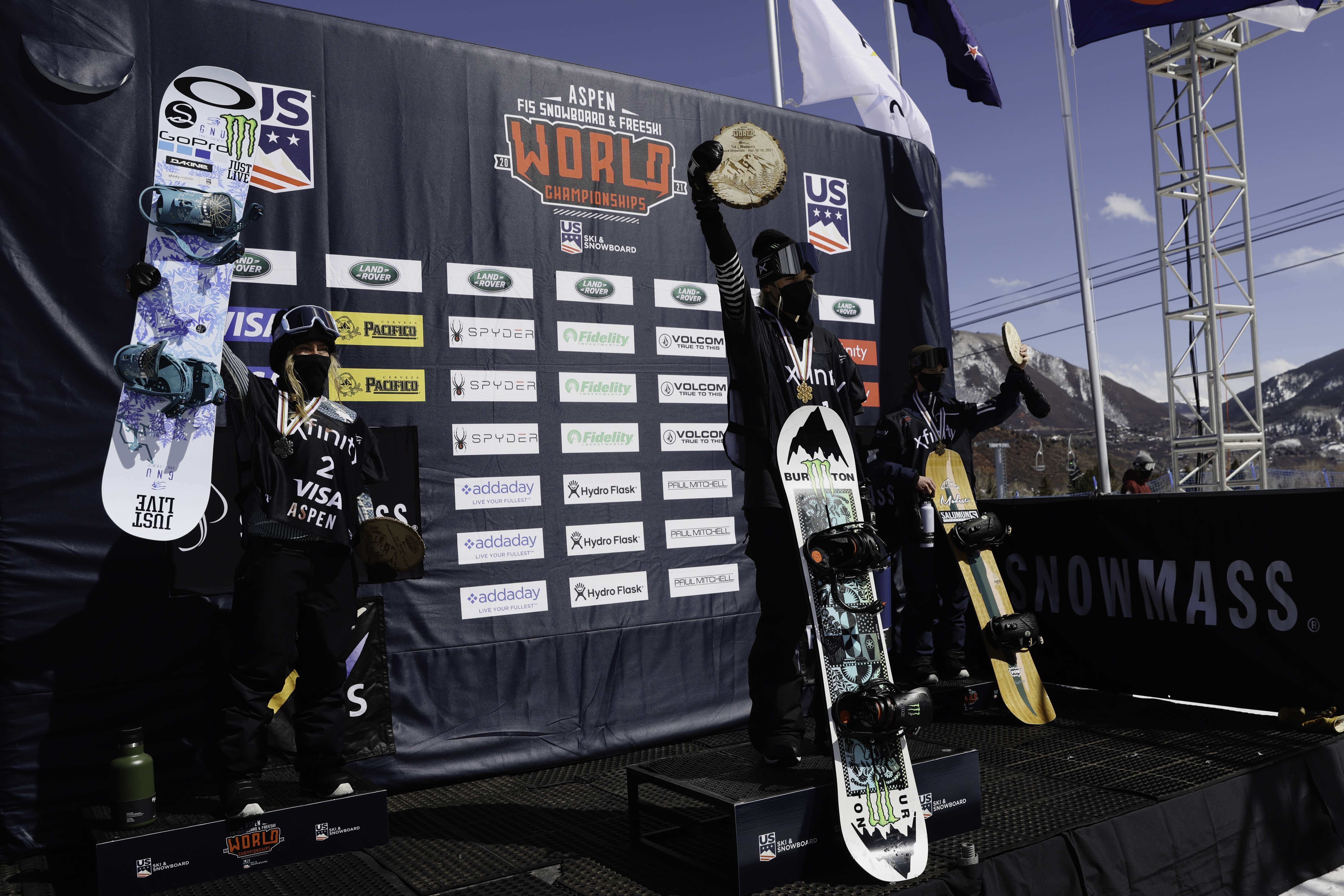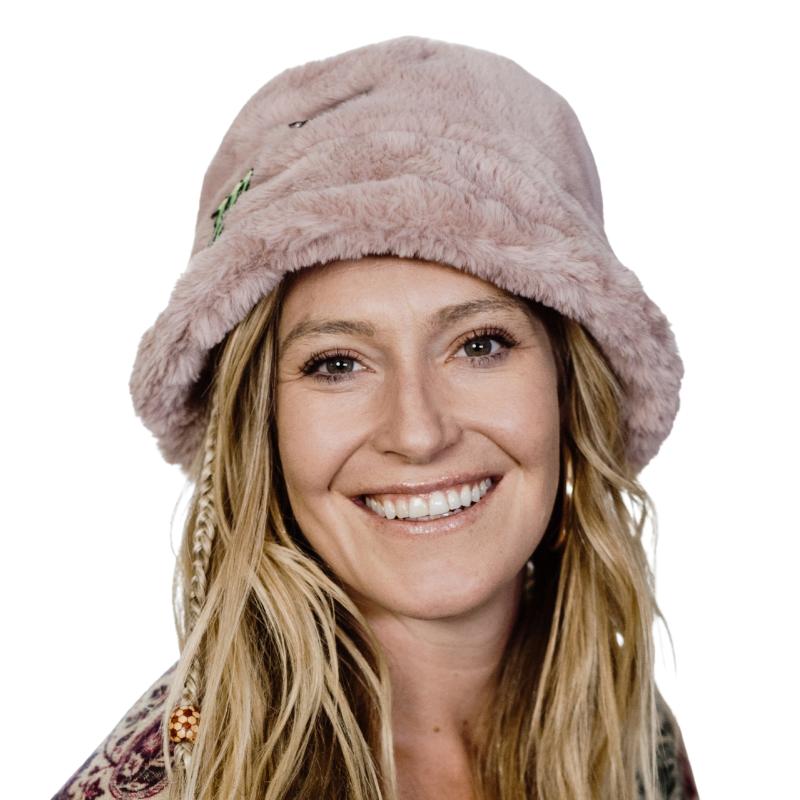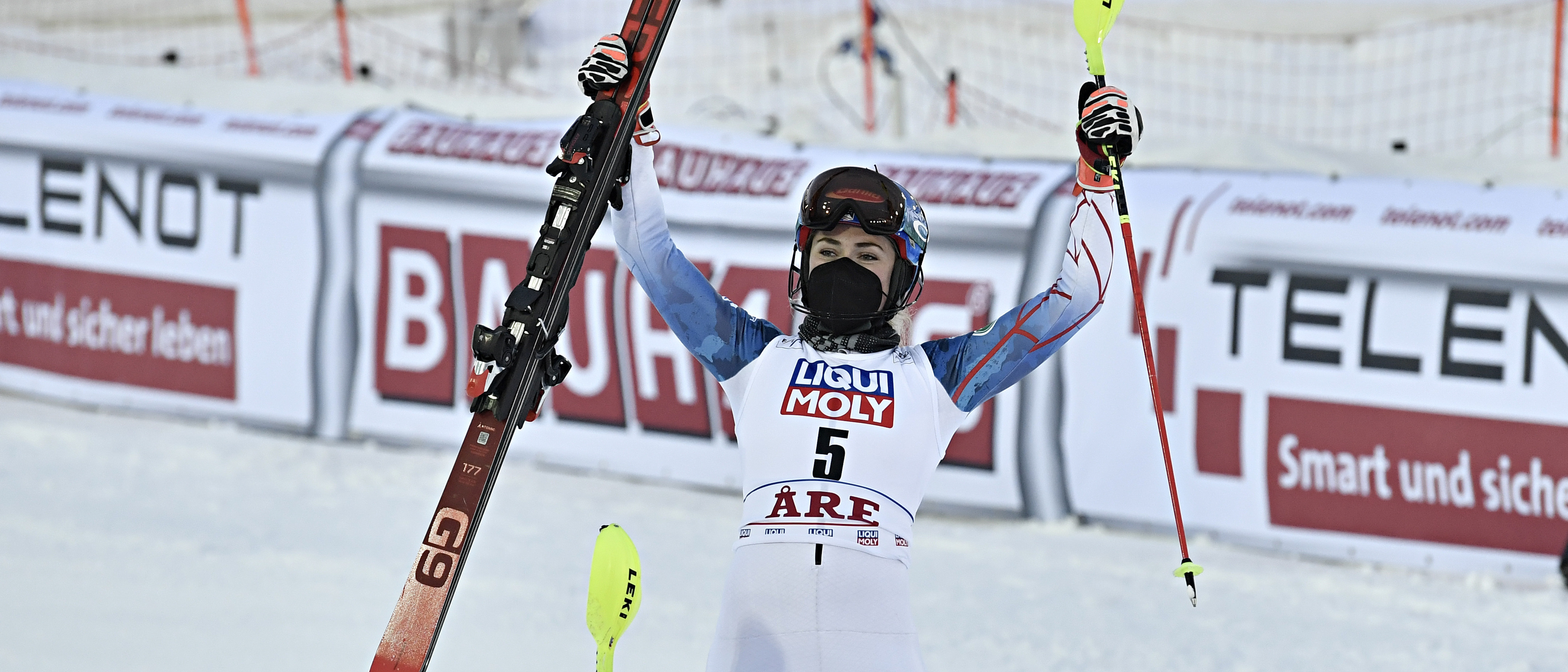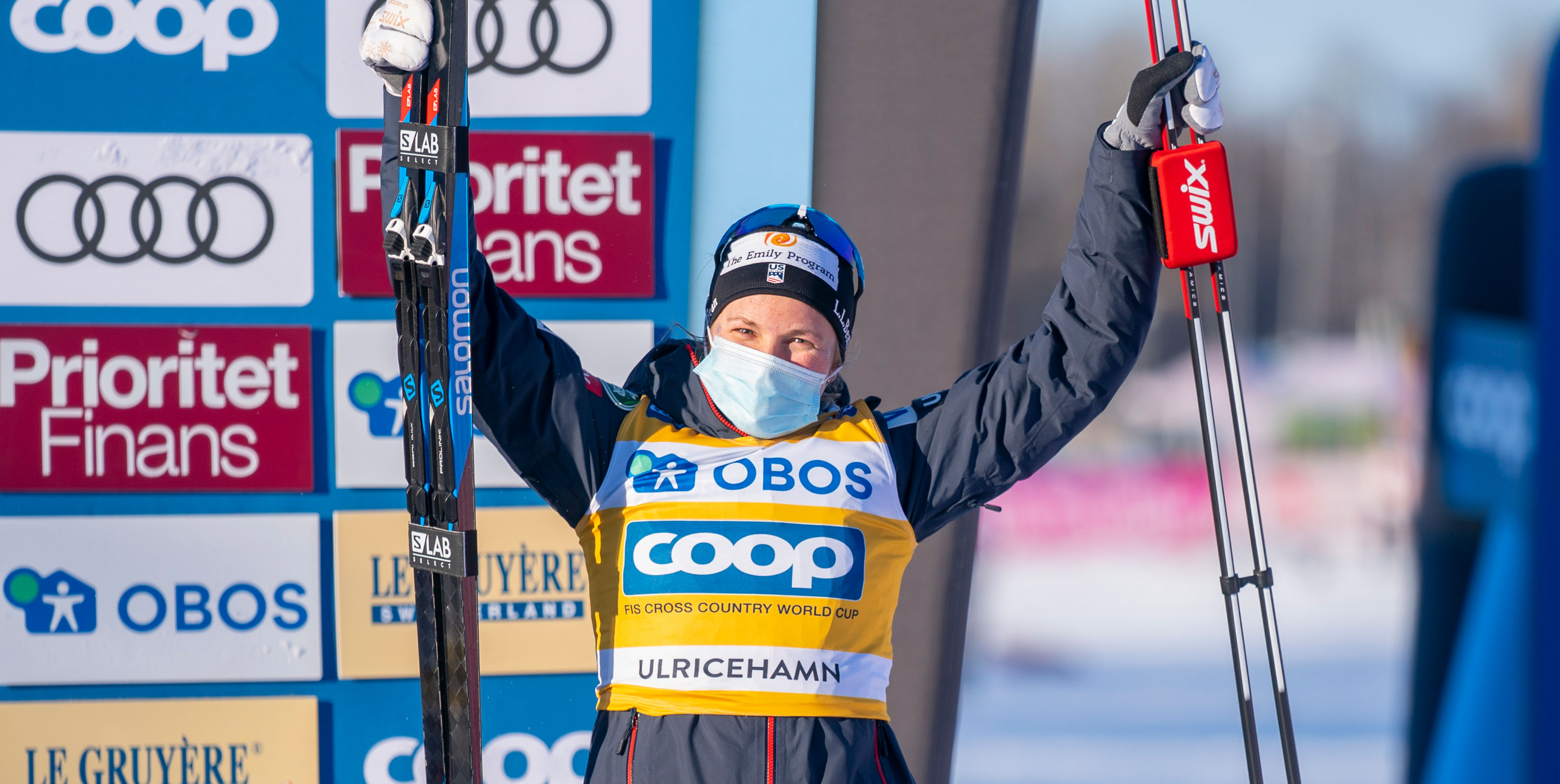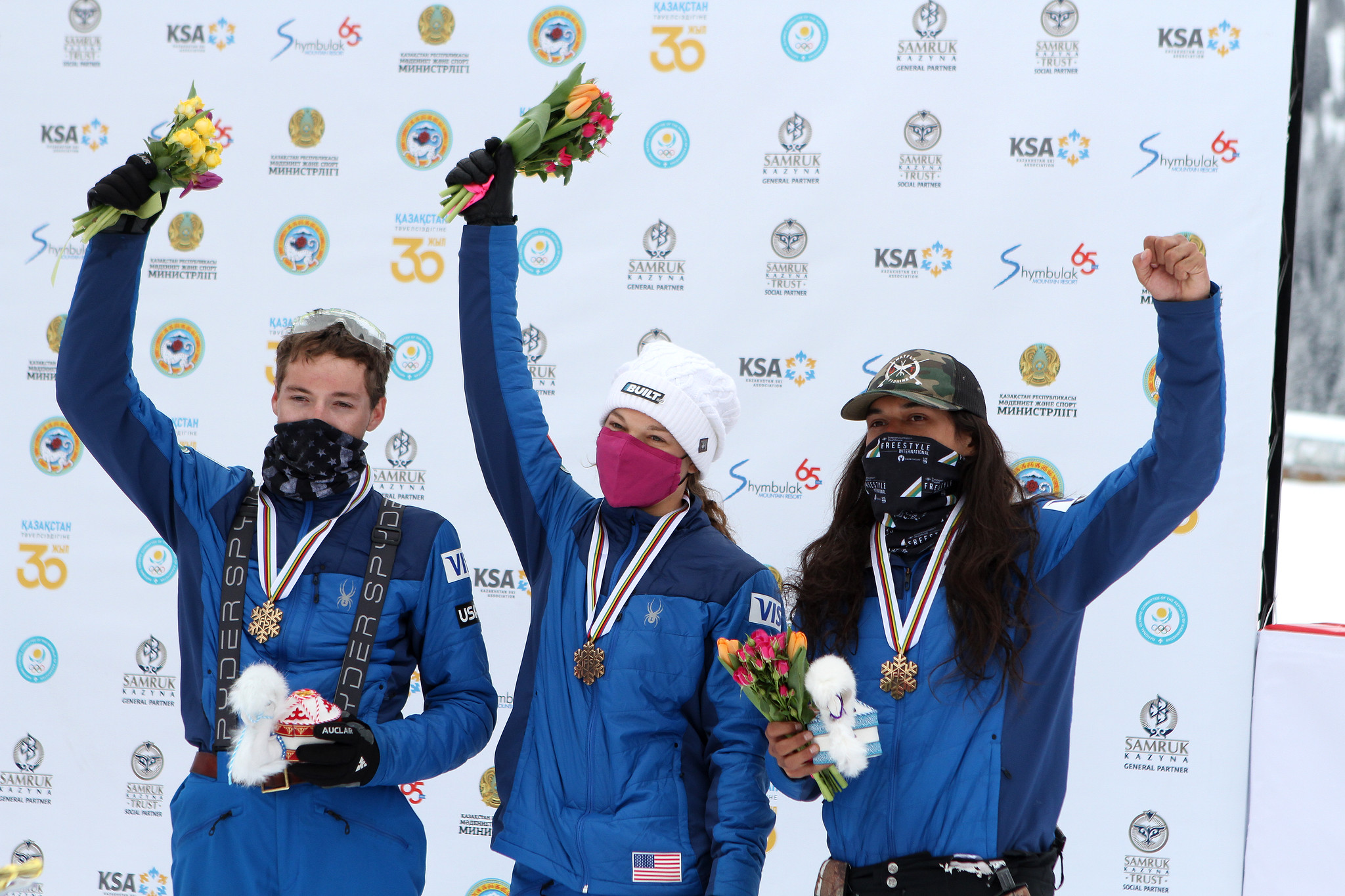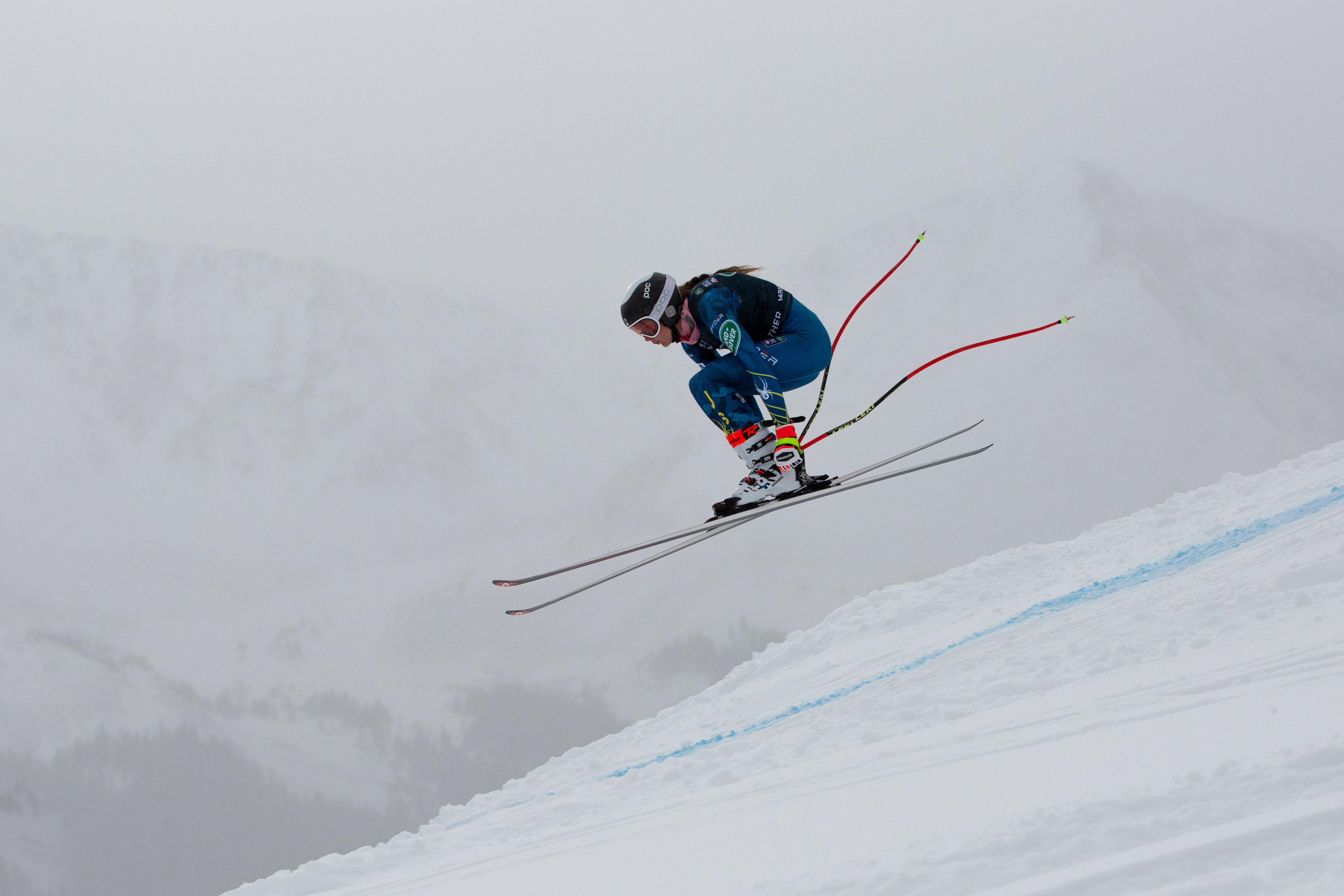Diggins Leads Three Into Top 14 In Classic Mass Start
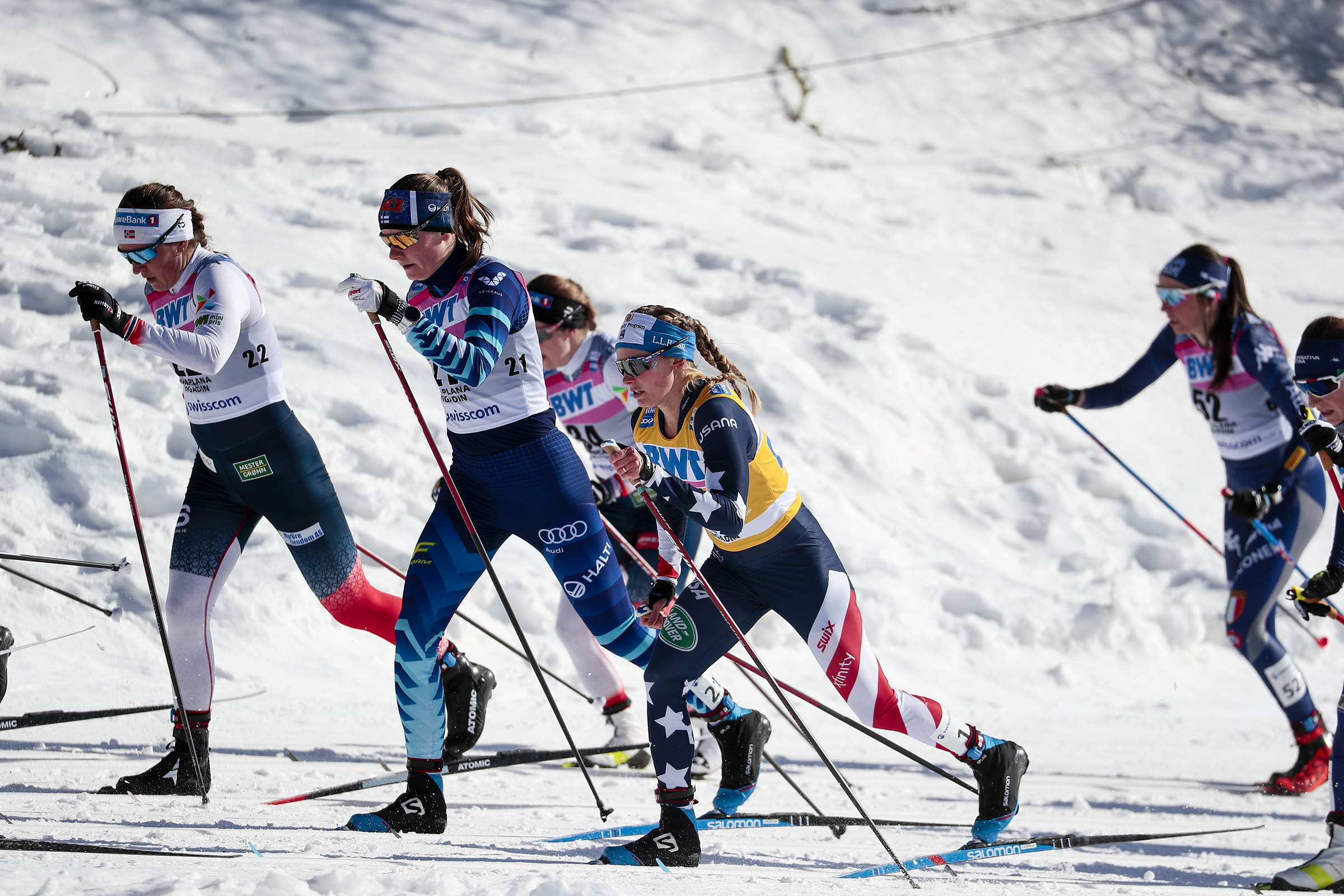
On a challenging, and beautiful track in the scenic Engadin Valley of Switzerland, Jessie Diggins skied to a fifth-place finish, leading three Davis U.S. Cross Country team athletes into the top 14. Hailey Swirbul was 12th, followed by Rosie Brennan in 14th.
Russia’s Yulia Stupak took the victory, skiing away from Norway’s Heidi Weng and Sweden’s Ebba Andersson on the final downhill for her second World Cup victory of the season. Stupak’s victory moved her into second in the overall World Cup standings behind Diggins and bumped Brennan from third to fourth overall.
Coming into the final weekend of racing, Brennan sat third in both the World Cup overall and distance standings, and she knew a solid result would keep her in the top three. From the start, she pushed the pace at the front, however, bad luck struck her on the first of three laps.
“I felt really good off the line today, but unfortunately got my pole kicked and broken about 2.5k into the race,” she said. “It was a bad place to break a pole and it took me a while to get my spare pole so I lost the lead pack at that time. I did what I could to climb my way back, but did not have enough in me. I am really heartbroken that I couldn't find another gear to fight back because I had great skis and had a lot riding on this weekend for the overall World Cup.”
Sporting fast skis, Diggins skied well in the front group, digging deep into the pain cave during the high-altitude race. However, in hindsight, a little less kick would have served her better.
“It was hard in the altitude, but my skis were pretty good,” the 2021 overall World Cup winner said. “I should have had the confidence to ask for less kick, but that’s my fault. But I was really happy with today.”
Rounding out the U.S. women, Katharine Ogden was 33rd, Sophia Laukli was 46th, and Julia Kern was 47th. However, all three were caught up in an early race crash that separated them from the lead pack.
In the men’s 15k race, Alexander Bulshunov exacted some revenge over Norway’s Johannes Klaebo from last weekend’s controversial 50k finish at the World Championships to take the victory by more than 18 seconds over the Norweigan. Norway's Paal Goldberg was third. David Norris was the top American finisher in 41st, followed by Hunter Wonders in 47th, Gus Schumacher 48th, Ben Ogden 51st, Scott Patterson 53rd, Kevin Bolger 60th, and Johnny Hagenbuch finishing 72nd in his first World Cup start.
“I went into it with zero expectations—just wanted to have fun and see the lay of the land,” Hagenbuch said. “It was very hectic in the beginning, and the start took me by surprise...I definitely have a lot to work on. The good news is that I think I have some time to accomplish it!”
Up next, the final race of the 2020-21 FIS Cross Country World Cup season. The women will race a 30k freestyle pursuit, and the men a 50k freestyle pursuit on a point-to-point course that follows mainly along the profile of the prestigious “Engadin Skimarathon” route.
“Tomorrow we start based on our finish today so it was a really bad day to not finish strong,” Brennan added. “But I will give it all I have tomorrow and do what I can finish the season strong.”
RESULTS
Women’s 10k classic mass start
Men’s 15k classic mass start
STANDINGS
Women’s overall World Cup
Men’s Overall World Cup
Women’s World Cup distance
Men’s World Cup distance
HOW TO WATCH
Sunday, March 14
3:15 a.m. FIS Cross-Country World Cup Women’s 30 km Pursuit - LIVE, Engadin, SUI,
5:35 a.m. FIS Cross-Country World Cup Men’s 50km Pursuit - LIVE, Engadin, SUI, Streaming Peacock
